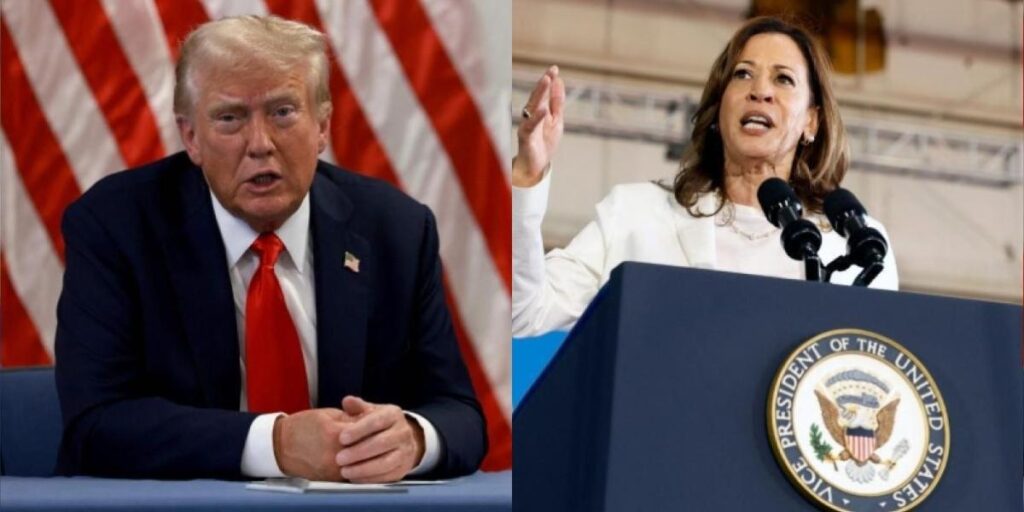
The 2024 U.S. presidential election is shaping up to be a highly contentious and closely watched race, reflecting deep political divisions in the country. This election is critical not only for determining the nation’s leadership but also for influencing the direction of U.S. domestic and foreign policy for years to come. The main contenders for the presidency are Vice President Kamala Harris, representing the Democratic Party, and former President Donald Trump, who is running as the Republican nominee. This essay will explore the key dynamics, challenges, and implications of the upcoming election.
The Political Landscape
The 2024 election occurs in a polarized political environment, with the electorate deeply divided on issues ranging from economic policy to social justice and foreign relations. Kamala Harris, who has taken the mantle from President Joe Biden, represents a continuation of the current administration’s policies, with a focus on economic recovery, healthcare reform, climate action, and social equity. Harris’s campaign is also marked by her historical significance as the first female and first woman of color vice president, which adds a symbolic layer to her candidacy.
On the other hand, Donald Trump is running on a platform of returning to what he calls “America First” policies. His campaign is characterized by strong a focus on immigration control, economic protectionism from unfair foreign competition, and a robust stance on law and order. Despite facing multiple legal challenges and controversies, Trump remains a powerful figure within the Republican Party and continues to galvanize a significant portion of the electorate that feels alienated by the current administration’s failed policies.
Key Issues
The 2024 election is being fought over several key issues that resonate deeply with American voters. The economy remains a top concern, with debates over inflation, job creation, and income inequality taking center stage. Harris has emphasized continuing the economic policies of the Biden administration, which include investments in infrastructure, green energy, and social welfare programs. In contrast, Trump criticizes these policies as overly costly and burdensome, advocating instead for tax cuts, deregulation, and a return to fossil fuel dominance.
Healthcare is another critical issue, with Harris advocating for expanding access to affordable healthcare and bolstering the Affordable Care Act. Trump, meanwhile, seeks to dismantle what he views as government overreach in healthcare, promoting a more market-driven approach.
Social issues, including race relations, reproductive rights, and gun control, are also highly divisive topics.
Harris’s campaign is aligned with progressive views, supporting reforms to address systemic racism, protect reproductive rights, and implement stricter gun control measures.
Trump’s stance on these issues is starkly different, appealing to conservative values and promising to protect Second Amendment rights, restrict abortion access, and maintain traditional law enforcement practices.
Electoral Dynamics
The electoral dynamics of the 2024 race are complex, with several battleground states likely to determine the outcome.
States like Pennsylvania, Michigan, and Wisconsin, which were crucial in the 2020 election, are again at the forefront. Harris has seen some positive polling in these areas, suggesting that her campaign’s focus on economic recovery and social justice is resonating with voters there.
However, Trump continues to enjoy strong support in other key states such as Florida and Texas, where his messaging on immigration and economic issues has a significant appeal. The race is further complicated by the potential impact of third-party candidates, such as Robert F. Kennedy Jr., who could draw votes away from the major party candidates, particularly in closely contested states.
Challenges and Implications
Both candidates face significant challenges in their campaigns. Harris must navigate a landscape where many voters are skeptical of the current administration’s achievements, especially in light of persistent economic challenges and political gridlock in Washington. Trump, meanwhile, must contend with ongoing legal battles and questions about his fitness to serve, which could alienate moderate voters.
The outcome of the 2024 election will have far-reaching implications for the United States. A Harris victory would likely mean a continuation and deepening of the policies initiated under Biden, with a focus on progressive reforms, international cooperation and a general consensus with what is known as the “2030 Agenda for Sustainable Development” and other woke-like policies.
A Trump win, on the other hand, would signify a return to a more isolationist and conservative approach, potentially leading to significant changes in U.S. domestic and foreign policy.
Conclusion
The 2024 U.S. presidential election is a defining moment in American history, with the potential to shape the country’s future for decades. As the campaigns intensify, the election will test the resilience of American democracy, the strength of its institutions, and the ability of the electorate to navigate a highly polarized political environment. Voters will ultimately decide between two starkly different visions for the nation’s future, making this election one of the most consequential in recent memory.


No more woke policies!!!!!👌